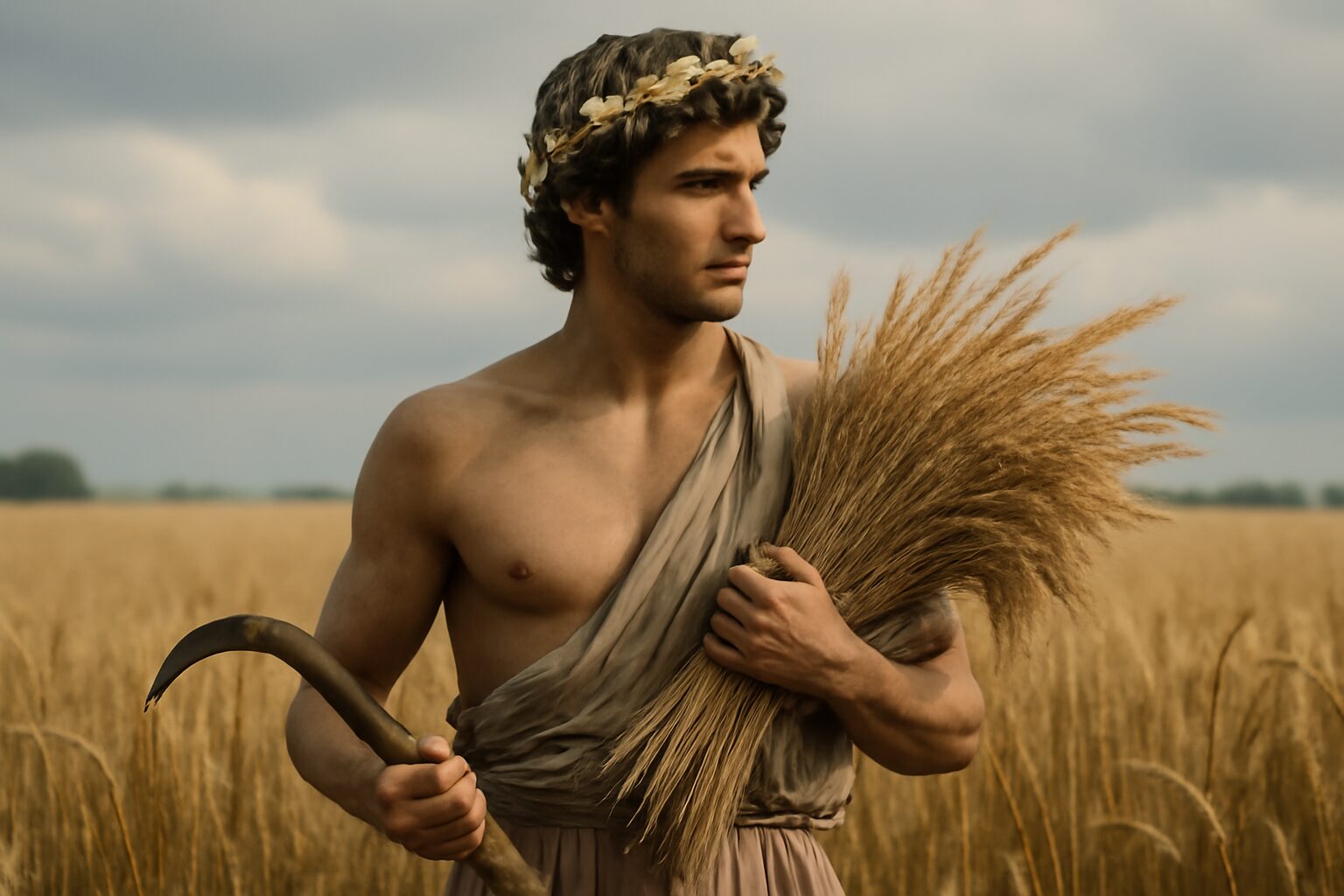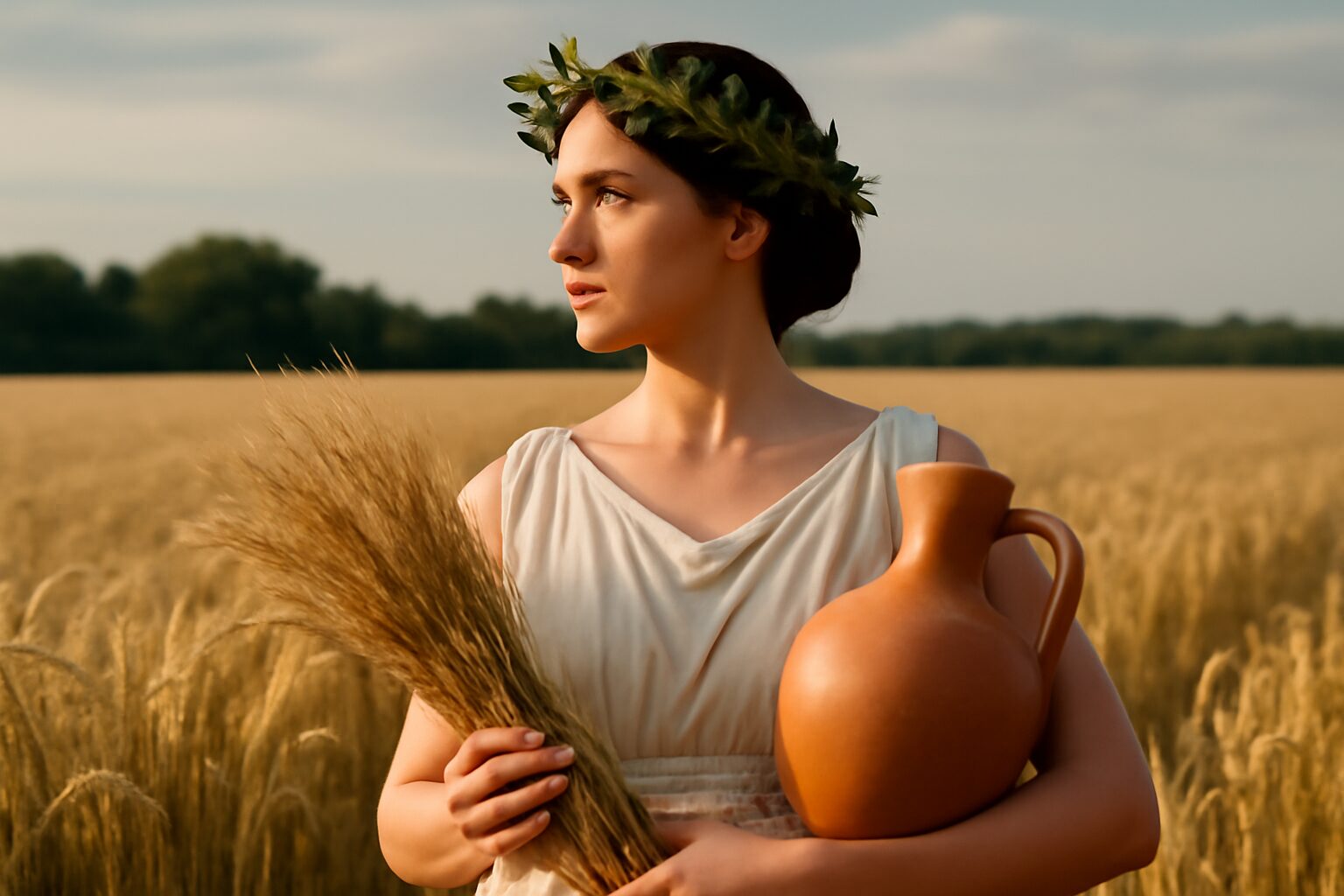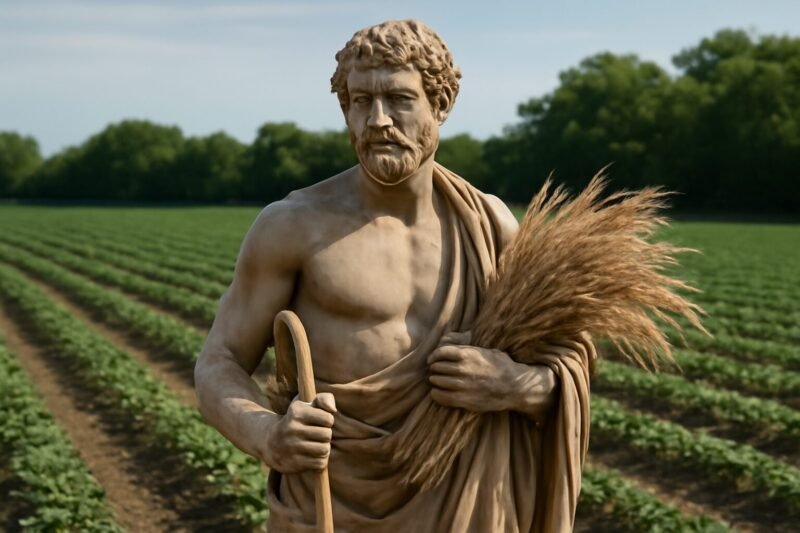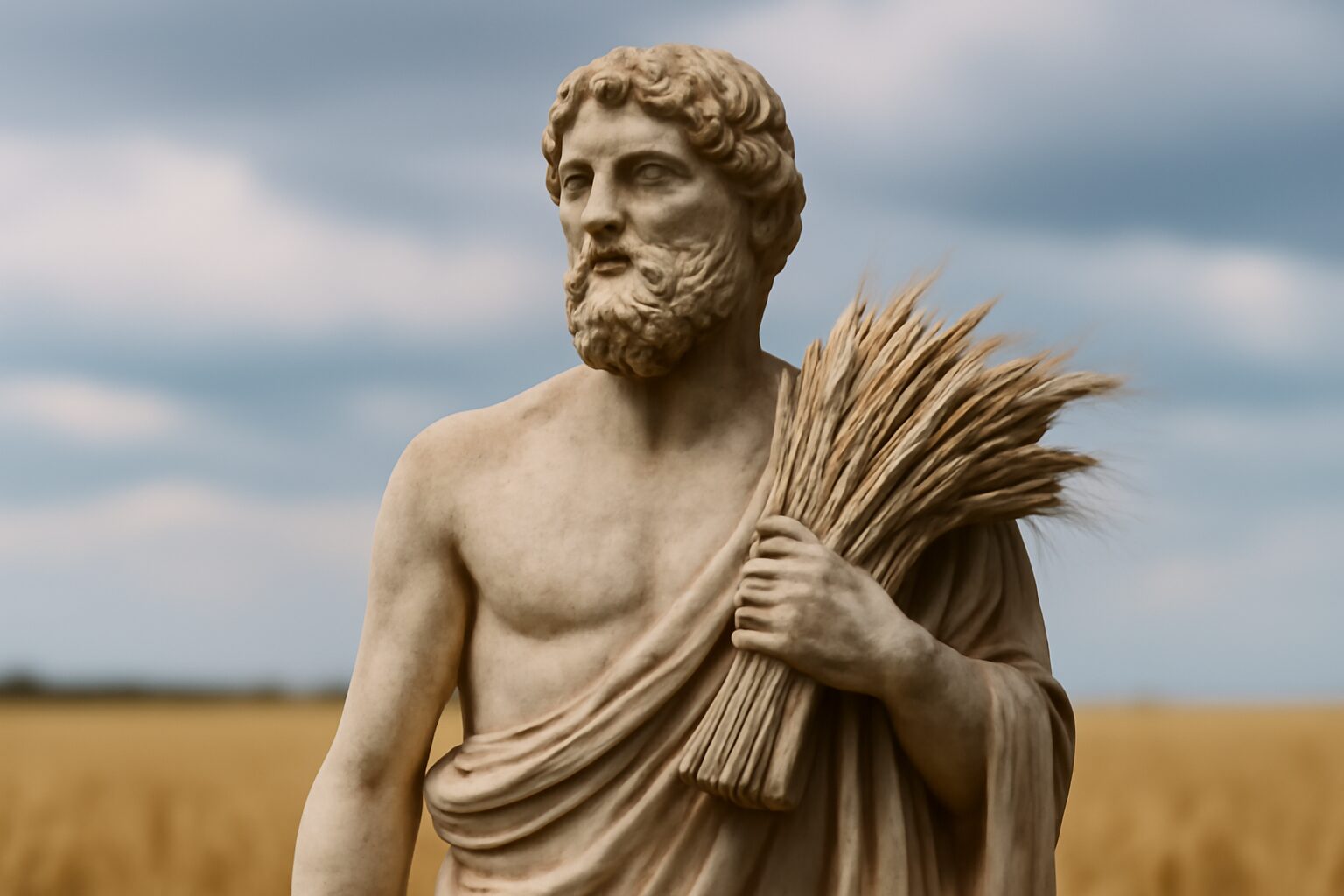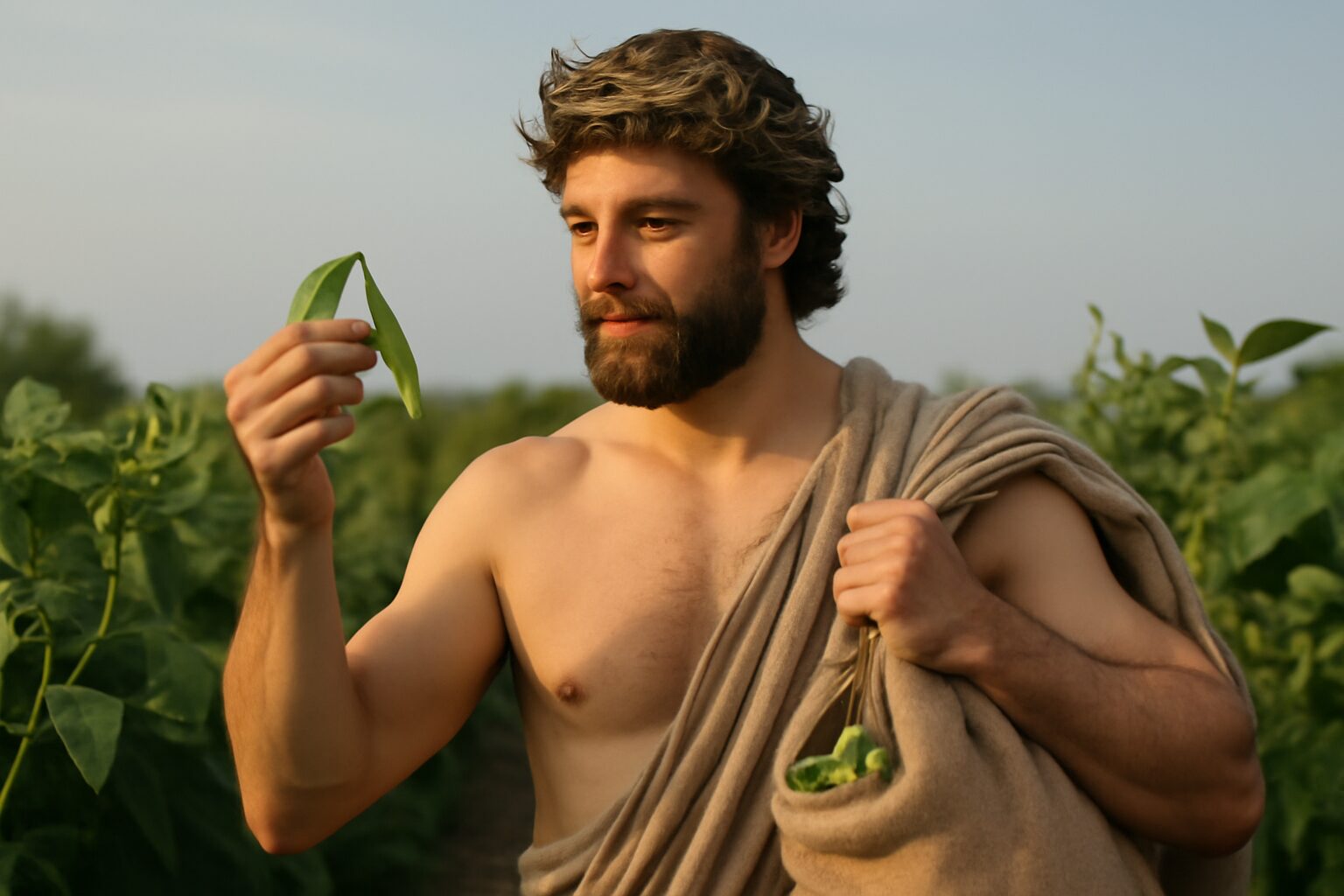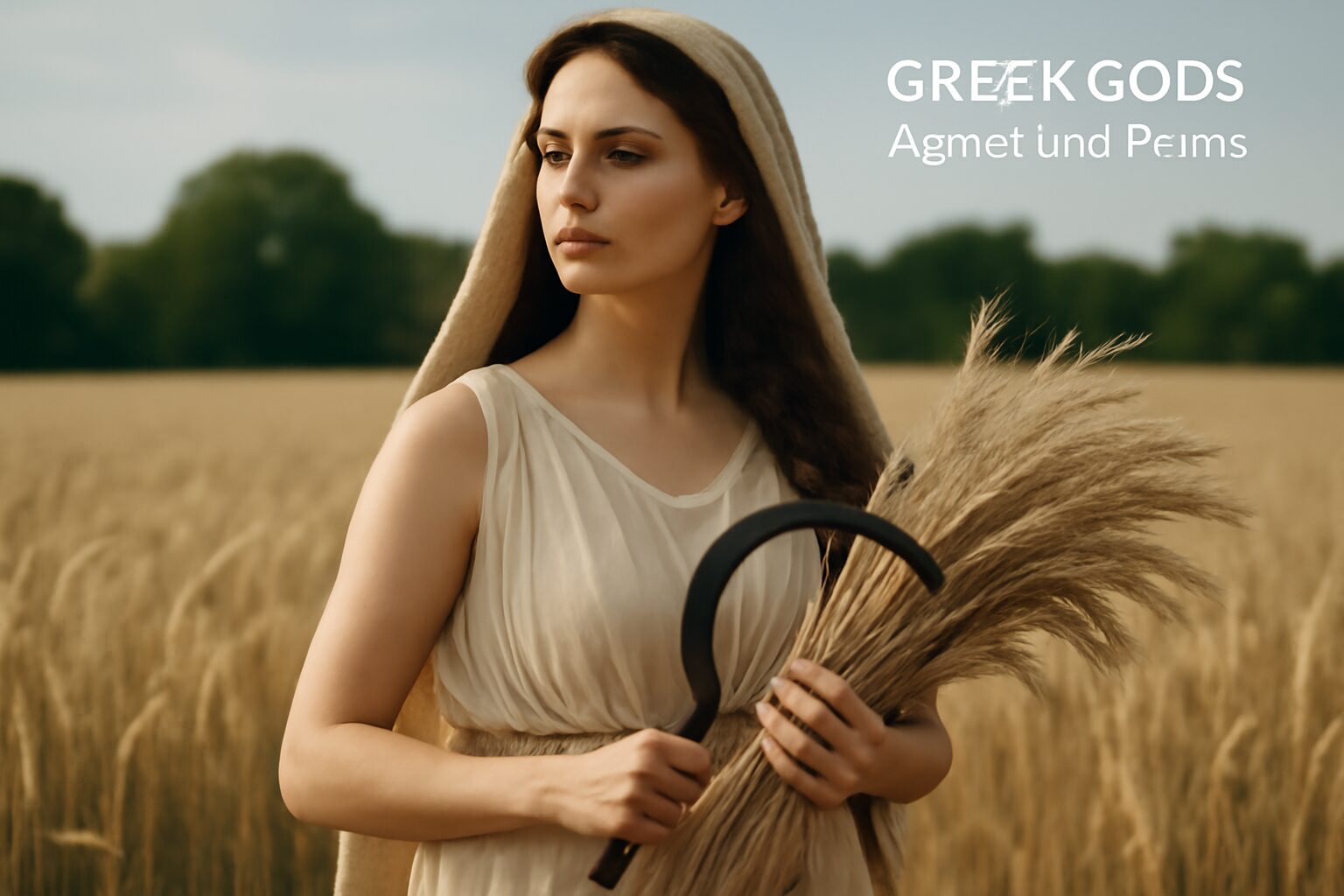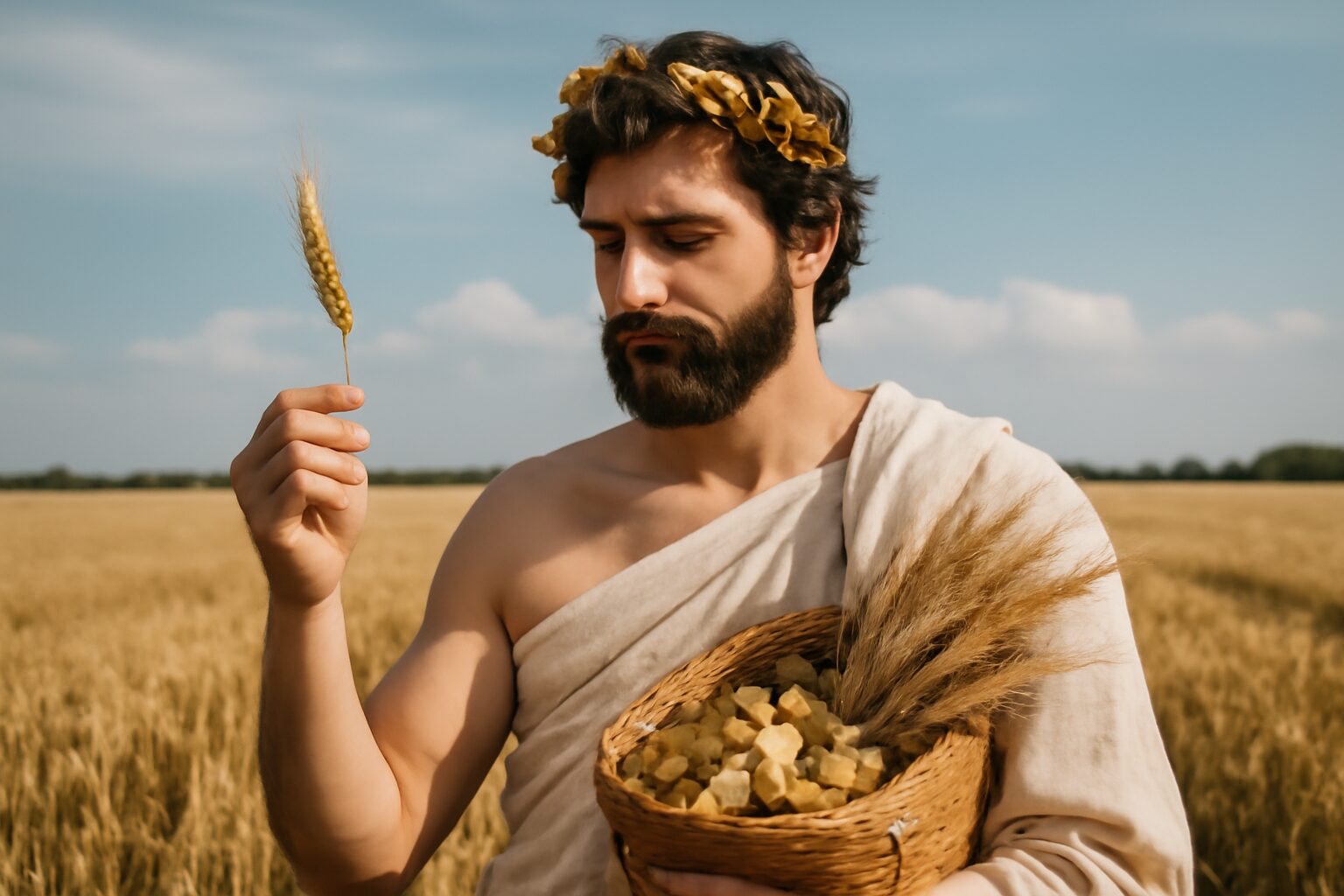Eunostus: The Obscure Guardian of Mills
In the vast pantheon of Greek deities, Eunostus stands as one of the more obscure figures, yet his role in daily life was deeply practical. Known as the god of mills and milling, Eunostus presided over the grinding of grain—a vital process in ancient Greek agriculture and sustenance.
Mythology and Origins
Eunostus's origins are shrouded in mystery, with few surviving myths dedicated to him. He was said to be the son of Elais, one of the Oenotropae—women gifted by Dionysus with the power to turn anything into wine or oil. His name, meaning "good return" or "blessed harvest," reflects his connection to the fruitful processing of grain into flour.
Unlike the Olympian gods, Eunostus was a local deity, primarily worshiped in Tanagra, a city in Boeotia. His cult was modest, centered around the practical needs of millers and bakers who relied on his favor for smooth operations.
Powers and Significance
Eunostus's domain was highly specialized: he ensured the proper functioning of mills, protected millstones from breaking, and guaranteed the quality of flour. In an agrarian society, his role was indispensable—grinding grain was a daily necessity, and disruptions could lead to food shortages.
Though not a warrior or a ruler, Eunostus embodied the quiet, steady forces that sustained civilization. His influence was felt in the hum of millstones and the aroma of fresh bread, linking him to Demeter, goddess of agriculture, and Hestia, guardian of the hearth.
Relationships and Worship
Eunostus had few divine connections, but his mother’s lineage tied him to Dionysus’s sphere of abundance. Some traditions suggest he was associated with nymphs of springs, as watermills were common in ancient Greece.
Worship of Eunostus was simple—offerings of flour, libations, or small tokens were left at mills or shrines. Unlike grand temples, his altars were humble, reflecting the everyday nature of his blessings. Despite his obscurity, those who depended on milling revered him as a silent, steadfast protector.
Legacy
Though Eunostus faded from prominence compared to gods like Zeus or Athena, his legacy endures as a reminder of the unseen deities who shaped daily life. In a world where bread was life, the god of mills ensured that the wheel of civilization kept turning.
Alternative Names for Eunostus
God Name: Eunostos (Roman)
A Latinized version of the Greek name Eunostus, used in Roman contexts to refer to the same deity.
God Name: Eunostos (Greek (variant))
An alternative spelling or dialectal variation of the name Eunostus found in some Greek sources.
God Name: Eunostos the Just (Greek (epithet))
An epithet emphasizing the god's association with justice and fairness, derived from his mythological role.
Tales about Eunostus
The Gift of Plutus
In the fertile plains of Boeotia, the agricultural deity Eunostus watched over the grain stores and milling processes with diligent care. One harsh winter, famine threatened the land, and the people’s reserves dwindled to dust. Desperate, Eunostus journeyed to the underworld’s edge to seek counsel from Plutus, the god of wealth and agricultural abundance.
Plutus, moved by Eunostus’s unwavering dedication to sustenance and fairness, bestowed upon him a magical millstone that could grind an endless supply of grain. With this gift, Eunostus returned to the villages, and the millstone never ceased its work, ensuring no one went hungry. The people celebrated Eunostus not only as a guardian of mills but as a savior, and his bond with Plutus became a symbol of prosperity arising from generosity.
The Alliance with Demeter
Another tale tells of a time when blight struck the crops across Attica. Eunostus, whose domain included the protection of flour and bread, saw the suffering of the people and knew he must act. He ventured to Eleusis, the sacred home of Demeter, goddess of the harvest, to plead for her intervention.
Demeter, grieving the loss of her daughter Persephone to the underworld, had let the lands wither in her sorrow. Eunostus, with gentle words and offerings of the finest bread from his own mills, reminded her of the joy that growth and nourishment bring. Touched by his sincerity and the symbol of sustenance he presented, Demeter agreed to restore the fertility of the soil. Together, they taught the people new methods of milling and storing grain, ensuring resilience against future hardships. This partnership highlighted Eunostus’s role not just in processing food, but in sustaining life itself.
Frequently Asked Questions
Who is Eunostus in Greek mythology?
Eunostus is a lesser-known agricultural deity in Greek mythology, often associated with mills and the grinding of grain. He represents the importance of agriculture and food production in ancient Greek society.
Why were agricultural deities like Eunostus important in ancient Greece?
Agricultural deities were vital because ancient Greek society relied heavily on farming and food production. Gods like Eunostus symbolized the processes and blessings needed for successful harvests, which were essential for survival.
What can we learn from the worship of agricultural deities like Eunostus?
The worship of agricultural deities highlights how ancient Greeks connected their daily lives and survival to the divine. It shows their dependence on nature and their efforts to seek favor for bountiful harvests through rituals and offerings.
Are there any myths or stories about Eunostus?
Eunostus doesn't feature prominently in major myths, but his association with grain mills suggests he was a practical deity. His quiet role reflects the everyday, yet critical, aspects of agriculture in Greek life.
How does the concept of agricultural deities apply today?
While modern societies don't worship agricultural deities, the idea reminds us of humanity's historical connection to the land and food production. It also underscores the cultural importance of honoring the sources of our sustenance, even in symbolic ways.

